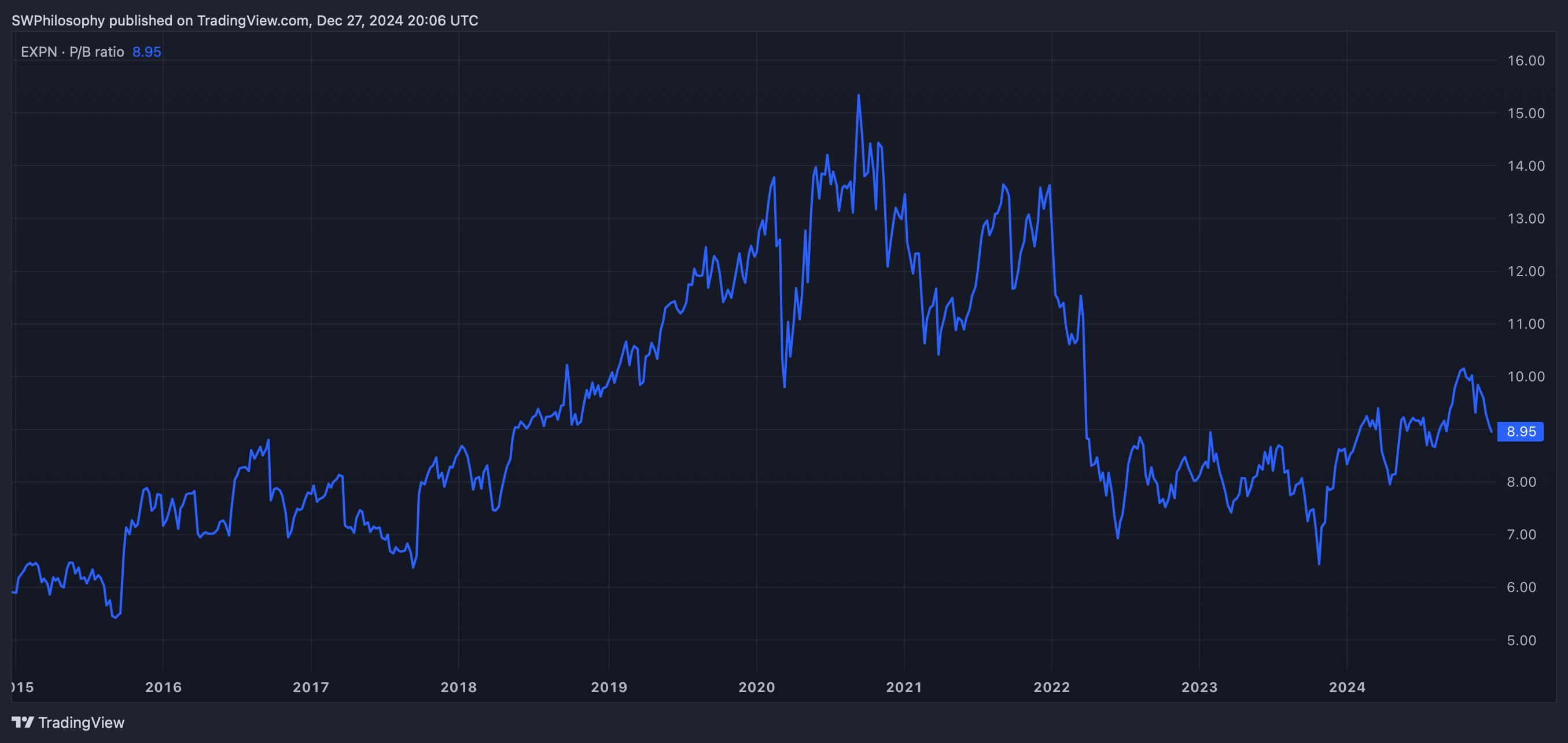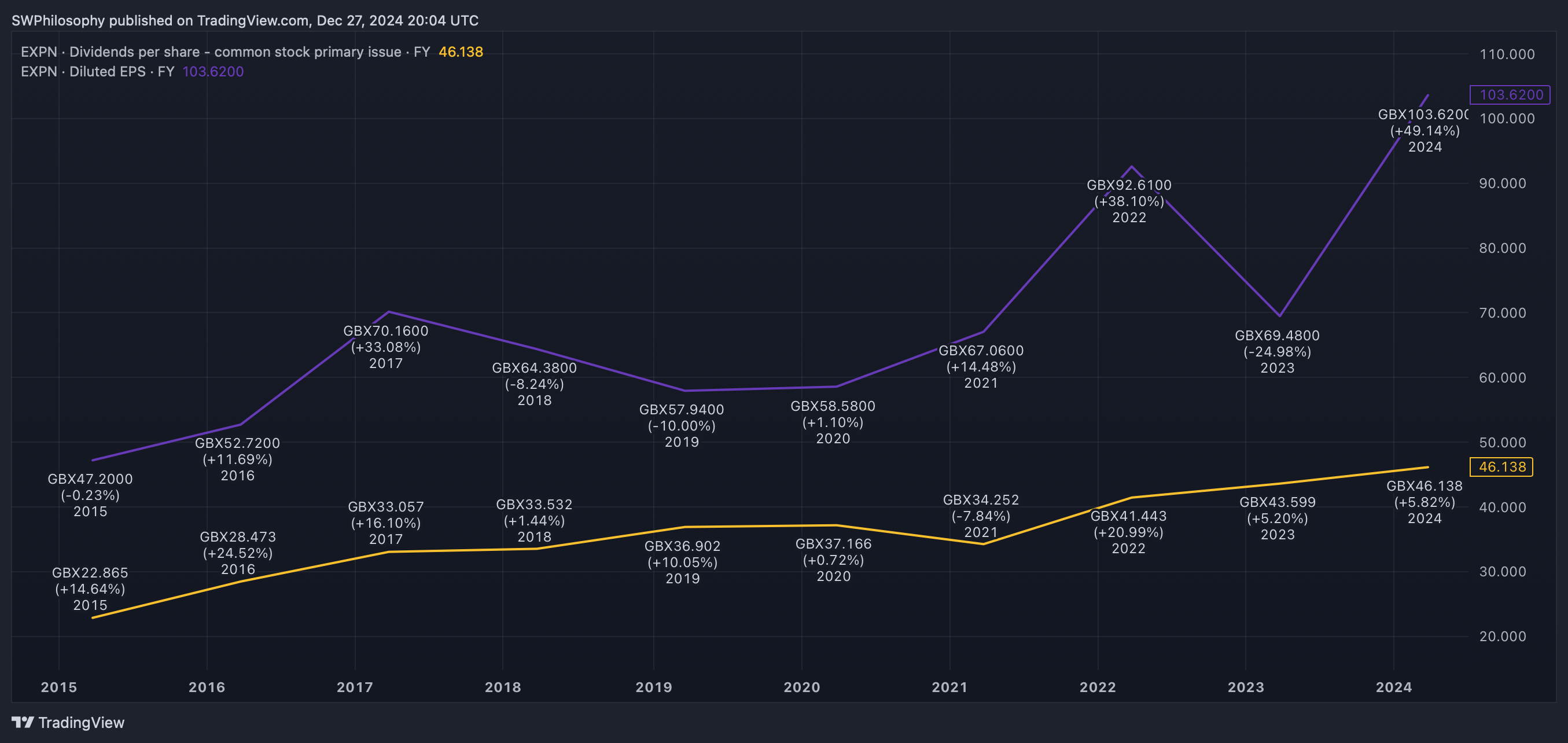Owning stocks that return cash dividends can be a great way of earning a second income. But UK investors have another strategy that’s also worth considering.
Experian (LSE:EXPN) shares have a 1.2% dividend yield, which doesn’t look exciting. Despite this, I think it could be a great source of passive income for investors to consider.
Capital allocation
Like all businesses, Experian has a choice about what to do with its earnings. It can either retain them in the business or distribute them to shareholders.
While the company does pay a dividend, this has only accounted for around 50% of its net income over the last decade. The rest of its earnings have been reinvested within the business.
Experian dividends per share vs earnings per share 2015-24
Created at TradingView
Shareholders however, can still earn income from these retained profits. With Experian being a publicly-traded organisation, they can generate income by selling some of their equity for cash.
In fact, income investors who own Experian shares might have done better if the firm never paid a dividend. The reason comes from how the market values the cash retained by the company.
Book value
Experian shares trade at a price-to-book (P/B) ratio of 8.95. That means the market’s currently paying almost £9 for every £1 in equity (the difference between its assets and its liabilities) the firm has.
That’s high for some companies, but it’s not for Experian. The stock’s generally traded at a P/B ratio above 6, meaning investors have consistently paid over £6 for £1 in equity in the firm.
Experian price-to-book ratio 2015-24

Created at TradingView
This means a £1 increase in the company’s book value leads to a £6 rise in its market-cap. And one way for the firm to grow its equity base is by retaining earnings, rather than distributing them.
In other words, the firm has a choice about what to do with every £1 it makes. It can either return it to investors directly – in which case they get £1 – or it can retain it and let them sell it for £6, or more.
Why Experian?
Quite a few stocks trade well above their book value, but I think Experian’s unusually interesting. I see the credit bureau as one of the hardest UK businesses for a competitor to disrupt.
As always, there are risks. Higher interest rates could cause demand for loans to fall and if this happens, I’d expect the credit report industry to suffer as well.
Over time though, I think the most important thing for an investment is its ability to provide something others can’t. And Experian has this with a huge database that’s almost impossible to replicate.
On top of this, the value for customers (mostly banks) is huge. The cost of a credit report is a fraction of the risk a mortgage lender takes on and this should help support demand over time.
Passive income without dividends
Experian doesn’t look like an obvious income stock. But investors are typically able to realise many times the earnings it retains by selling part of their stake.
This, combined with a strong competitive position, could make the company a durable source of passive income. The dividend yield might be low, but there’s much more than this to consider.
This post was originally published on Motley Fool



